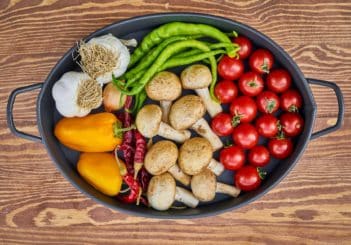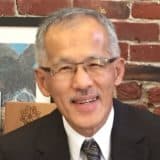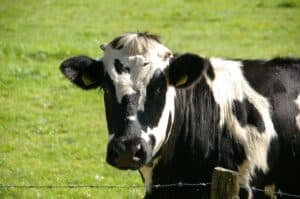
Growing up in a Chinese-American home, there was always some kind of meat dish. Even if there wasn’t enough money to buy a prime cut of beef, there was always lop-cheung, sausages that came tied in bunches with the string used to dry them in the butcher shop. After a pot of white rice was washed and the water had been boiled off, you put a lop-cheung in the pot for each person eating that night and covered it. After a few minutes, the rice was fully soaked in the fat of the lop-cheung and the aroma filled the house. Then it was time to eat. It is said that Chinese eat anything with four legs except the kitchen table.
In 1998 I was called to serve as the Senior Pastor of the historic First Chinese Baptist Church in San Francisco. At the other end of our street stood a restaurant, Uncle’s Café, that still serves one of the best tasting oxtail stews in town. Instead of lop-cheung over rice, the oxtail stew, mixed with potatoes, carrots, onions, and celery in a thick gravy, is poured over the rice. This is a big step from what I had at home. For about $5, you get the stew over rice, a dinner roll, a cup of coffee, and a piece of apple pie. I ate with no guilt or self-consciousness. And for such a price, it’s cheaper than a Big Mac!
As Senior Pastor my weekly responsibilities included preparing a sermon and a Bible study. Every week, I sought to interpret the Scriptures in a way that had relevance for our congregation. During one season my personal study led me to read Genesis 2, and I learned how in the original creation God planned for us to eat food that grew from the ground. I read Isaiah 11 and discovered how, in the future, God wants us to live peaceably with all living things, including cattle, pigs, chickens, turkeys, fish, and shellfish. I began to experience an inner struggle that questioned why God’s plan for creation was not being made evident in my personal lifestyle.
…my personal study led me to read Genesis 2, and I learned how in the original creation God planned for us to eat food that grew from the ground.
Every time I stood behind the pulpit I called people to be more giving, knowing that they would still hold some back. I called people to be more kind, knowing that they still had prejudices. I called them to act and live as the Body of Christ, knowing very well that there were still gossip, backbiting and squabbles in our church. I began to understand that I would always be calling people to be more than they are able to be until the age of Christ’s reign. I came to the realization and then the conviction that I am a vegetarian not by birth in a Chinese-American home, but by faith, so that I may model for the not yet and for the is to come. For me, being a vegetarian is a matter of personal and spiritual integrity.
My eating decision opens discussions about other lifestyle issues. It’s no longer possible for me to eat vegetarian and not look into every other aspect of living more holistically. Physical exercise becomes important and essential and now occupies two time slots for playing tennis in my weekly day-timer planner. When tennis is not possible, I substitute gardening and housework as alternative forms of physical exertion. Following recommended physical check-ups and taking vitamin supplements provide the confidence that my health is on the right track.
As the result of my conviction, multiple circles of life and relationships are also affected. While my wife is not a vegetarian, when we eat at home together we both eat vegetable-based meals. We shop at markets that have more vegetarian products and fresh fruits and vegetables. Last year I even started a small planter-box garden that has yielded heirloom tomatoes, string beans, and strawberries.
Perhaps the most significant transformation of what started as my rediscovering the meaning of Scriptures and how that has affected my lifestyle is how my church has responded to my decision.
Perhaps the most significant transformation of what started as my rediscovering the meaning of Scriptures and how that has affected my lifestyle is how my church has responded to my decision. While I haven’t converted as many to vegetarianism as God has transformed lives to believe in Jesus Christ as their Lord and Savior, I have made a small impact. Our congregation is more aware of having a vegetarian option when I come over for dinner. They make the dish and try it for themselves and on many occasions, they even like it.
When I was first called into Christian ministry way back in 1975, I never thought that I would not be eating anything with four legs except the kitchen table. But what I do know now is that God has called me to be faithful, both when I stand behind the pulpit and when I pick up a fork.
 Rev. Don Ng served as the Senior Pastor of the First Chinese Baptist Church in San Francisco from 1998 to 2015, and as the President of American Baptist Churches USA (ABCUSA) from 2014-2015. Whenever Don finds some extra time from his ministry, he is usually spending it with his grandkids. This article originally appeared in Minister Magazine, a journal of the American Baptist Ministers Council.
Rev. Don Ng served as the Senior Pastor of the First Chinese Baptist Church in San Francisco from 1998 to 2015, and as the President of American Baptist Churches USA (ABCUSA) from 2014-2015. Whenever Don finds some extra time from his ministry, he is usually spending it with his grandkids. This article originally appeared in Minister Magazine, a journal of the American Baptist Ministers Council.


